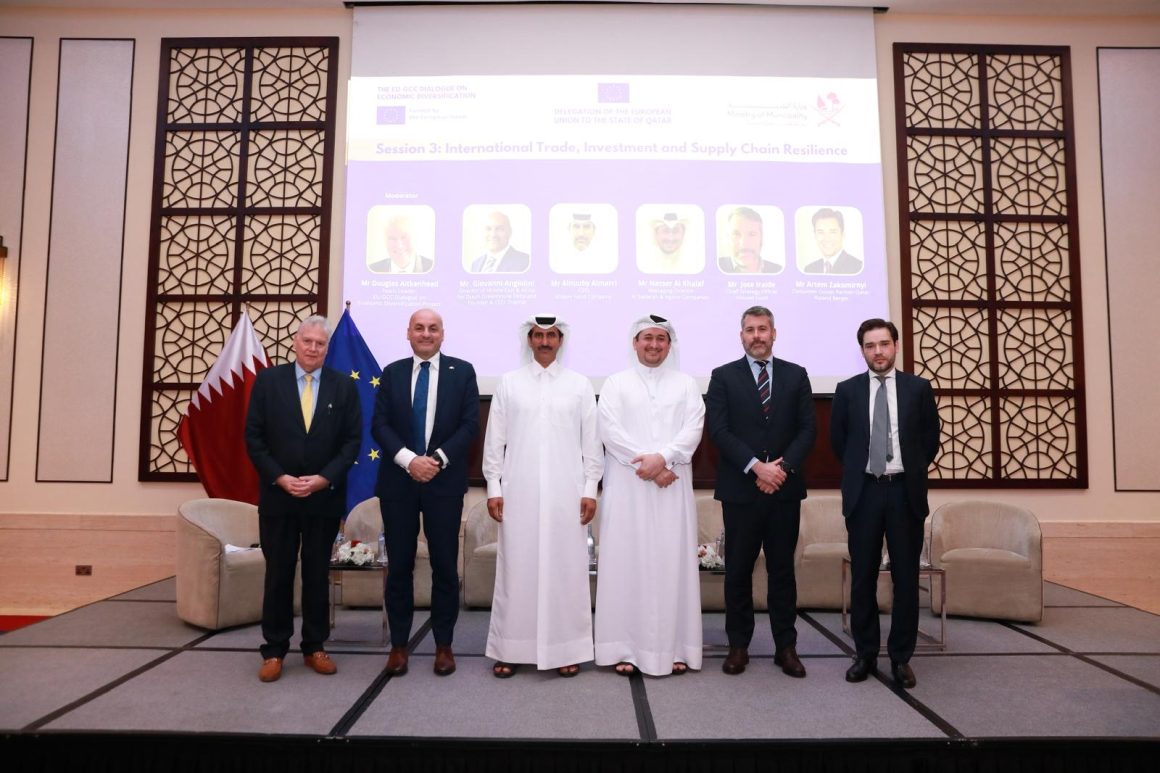The event organised by the EU-GCC Dialogue on Economic Diversification Project aimed to discuss Qatar’s food security and self-sufficiency goals.
At a recent event, experts said that collaboration among local governing bodies, the private sector, and international partners can synergise Qatar’s goal of attaining self-sufficiency and maintaining food security.
The “Forging Qatari-EU Partnerships for Sustainable Food Security” event was organised by the EU-GCC Dialogue on Economic Diversification Project and featured high-level officials, experts, and industry leaders from both Qatar and the European Union.
In partnership with Qatar’s Ministry of Municipality and the European Union Delegation to Qatar, the event focused on fostering innovation, strengthening trade relations, and identifying collaborative solutions to shared challenges in agriculture and food production.
The event kicked off with the Ambassador of the European Union to Qatar, Dr. Cristian Tudor’s, who highlighted the importance of stronger ties between the EU and Qatar through initiatives of mutual interest.
“The EU is committed to partnering with Qatar in fostering innovation in agritech and sustainable farming practices, driven by the European Green Deal and Farm to Fork Strategy,” Tudor said.
“Food security is a global challenge, and it requires global solutions. Together, we can strengthen Qatar’s food security while promoting environmentally sustainable practices.”

The event included two panel discussions that focused on the challenges and opportunities in sustainable agriculture, as well as international trade and resilient food supply chains.
Experts from both panels agreed on the importance of research, innovation, and regional collaboration in helping Qatar achieve its food security objectives.
Aligned with Qatar’s goal of reaching 18 percent self-sufficiency by 2030 through its six-year Food Security Strategy, the event sparked vital discussions, according to Dr. Jarallah Al-Marri, Director of the Food Security Department at the Ministry of Municipality.
“Our strategy for 2024-2030 focuses on increasing self-sufficiency, integrating technology, and ensuring resilience in our food supply chains,” Al-Marri said.
“Collaborating with the European Union and learning from its experience in sustainable agriculture will help us achieve these goals and create a more resilient food system for the future.”







